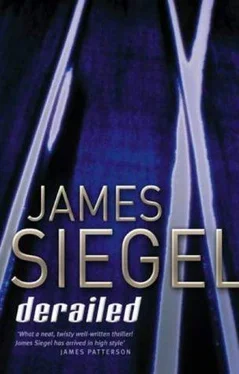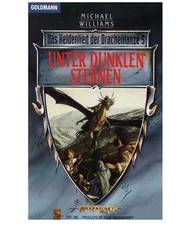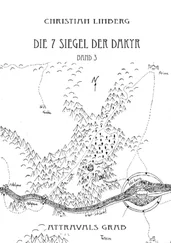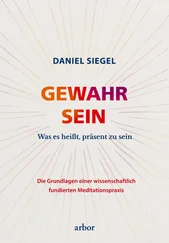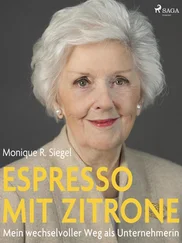“I’m taking you to a hospital, Lucinda, and then I’m going to the police.”
Lucinda said: “Get out of here, Charles.”
“He can’t get away with it. He can’t do this to you. It’s gone too far. Do you understand me?”
“Get out of here, Charles.”
“Please, Lucinda . . . we’re going to report this, and — ”
“Get out!" This time she screamed it.
So I did. I ran . Down the stairs, out the front door, back into the waiting car, feeling all the while one distinct, overpowering, and guilty little emotion.
Overwhelming relief.
TWENTY-EIGHT
For two weeks or so, I believed.
Believed that possibly the worst was over. That, okay, I’d been tested, tested severely — a modern-day Job, even — but that it was entirely possible things were going to work out in the end.
Yes, it was hard to look Anna in the face these days, very hard. Knowing that the money I’d painstakingly accumulated for her was, for all intents and purposes, gone. That my carefully constructed bulwark against her insidious and encroaching enemy was virtually depleted.
It was hard, too, looking at Deanna—who trusted me, maybe the very last thing in life she did trust — knowing what I’d done with that trust.
Hardest of all, of course, was thinking about the people I couldn’t look at. Lucinda, for instance—whom I’d failed not once, but twice. And Winston. Whom I’d failed right into the grave. Their pictures clamored for my attention, like needy children demanding to be seen. Look at me . . . look. I tried not to, I tried tucking Winston away in places where I couldn’t find him. But I always did. When I picked up an ordinary piece of office mail, or read an article about the winter baseball meetings — he’d say hello. I’d see him lying there the way I’d left him. I’d close my eyes, but the pictures wouldn’t go away. Like the flash of a camera that remains seared on your eyelids.
Still, I was hopeful.
Hoping for two things, really. That Vasquez had actually meant what he said, that he realized the well was good and dry now and he wouldn’t be coming back. That he had relocated.
And I was hoping that I could rebuild Anna’s Fund. That through diligent and constant cheating, through the auspices of the T&D Music House, I could build it back to where it was before. That I could do this before I might actually need it. Before anyone noticed it, either.
For two weeks, then, this is what I clung to.
Then there was a man waiting for me in reception. That’s what Darlene said.
“What man?” I asked her.
“He’s a detective,” Darlene said.
I thought of Dick Tracy. At first I did — remembering the Sunday comics I used to press into Play-Doh, then stretch into funhouse mirror versions of their former selves.
“A detective?” I repeated.
“Yeah.”
“Tell him I’m not here,” I said.
Darlene asked me if I was sure.
“Yes, Darlene. I’m sure.” Letting just a touch of annoyance into my voice — because annoyance covered up what I was actually feeling, which was, okay, fear.
“Fine.”
And the detective left. After which Darlene informed me that it was a police detective who’d been waiting for me.
The next day he was back.
This time he was sitting there in full view as I exited the elevator. I wasn’t actually aware he was the police detective until he got up and introduced himself as such.
“Mr. Schine?” he said.
And I immediately noticed that if he was a rep, he was devoid of reels, and if he was someone seeking employment, he was minus a portfolio.
“I’m Detective Palumbo,” he said, just like in the movies and TV. That New York accent, the kind that always seems somehow phony in the darkness of a movie theater.
Purpetration . . . dufendunt . . . awficcer.
That’s how Detective Palumbo sounded — only no matinee looks here. A genuine double chin and a stomach that never met the Ab Roller +. Of course, he carried a real badge.
“Yes?” I said. A dutiful citizen just trying to be helpful to an officer of the law.
“Could I have a word with you?”
Of course. No problem. Anything I can do, Officer.
We walked past Darlene, who gave me a look that seemed somewhat reproachful. I asked you if you really wanted me to tell the detective you weren’t there, didn’t I?
We walked in, I shut the door behind us, we both sat down. And all that time, I was having a disturbing conversation with myself. Asking myself myriad questions that I couldn’t answer. For instance, what was the detective here for? Had Lucinda reconsidered and gone to the police herself?
“Do you know Winston Boyko?”
No. Detective Palumbo was here about someone else. He was here about Winston.
“What?” I said.
“Do you know Winston Boyko?”
Okay. What were my options here? No, I don’t wasn’t one of them. After all, there were a number of people who could swear just the opposite — Darlene, Tim Ward, and half the sixth floor.
“Yes.”
Detective Palumbo was scribbling something in his little notebook that he’d produced almost magically out of his coat, scribbling away and seemingly waiting for me to embellish a little.
(A detective comes to see you and asks you if you know this obscure mailroom employee and you say . . . what is it? Yes. That’s it. No curiosity about why? )
“Why do you want to know, Detective?”
“He’s missing,” Detective Palumbo said.
A lot better than He's been found dead. I could cry all I wanted about this unexpected interrogation, but a Winston missing was better than a Winston found.
“Really?” I said.
Detective Palumbo had a red mark on the bridge of his nose. Contacts? A slight nick on his chin where he’d cut himself shaving? I checked out his face as if it might hold a few answers for me. For instance, what he thought I knew.
“For over two weeks,” Palumbo said.
“Hmmm . . .” I was down to monosyllabic responses now, being as my brain was off somewhere else furiously constructing alibis.
“When was the last time you saw him?” Detective Palumbo asked.
Good question. Maybe even a trick question, like who was the last left-handed batter to win the American League MVP award? Everyone says Yastrzemski, everyone, but it’s a trick — it’s really Vida Blue, left-handed wunderkind pitcher for the Oakland As. The kind of question Winston would have loved, too.
When did you last see him?
“Gee, I don’t know,” I finally said. “A few weeks ago, I think.”
“Uh-huh,” Palumbo said, still scribbling. “What exactly was your relationship, Mr. Schine?”
What did that mean? Wasn't relationship the kind of word you used for people who had one? Lucinda and me, for instance. If Palumbo was asking me what kind of relationship Lucinda and I had, I would’ve said brief. I would’ve said sex and violence, and you can forget the sex.
“He works here,” I said. “He delivers my mail.”
“Yeah,” Palumbo said. “That’s it?”
“Yes.”
“Uh-huh.” Palumbo was staring at the picture of my family.
“So I guess you’re interviewing. . .everyone?” I asked, hoped.
“Everyone?”
“You know, everyone who works here?”
“No,” Palumbo said, “not everyone.”
I could’ve asked him, Why me, then? I could’ve asked him that, but I was afraid of the answer I might get back, so I didn’t. Even though I was wondering if Palumbo was expecting me to ask him that.
Читать дальше
